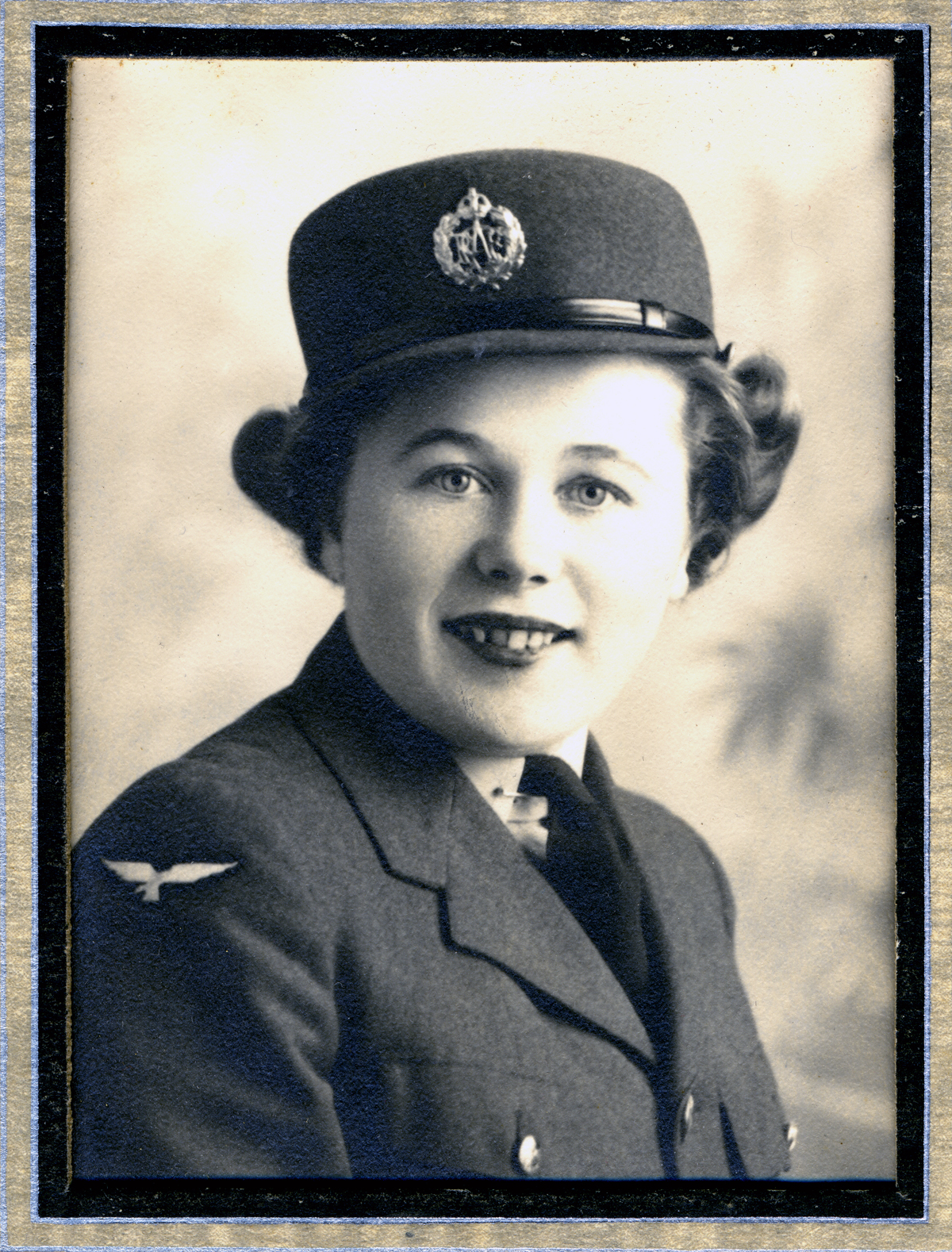Esther was born on a farm located outside the city of Dryden. As a child she walked three miles to Albert Street School. She also attended Dryden High School for two years. Like many people her age who attended the high school, she remembers Ward Scott as one of her remarkable teachers.
After her two years at DHS she quit and went to work at Pitt’s Grocery store. Later, she worked in the office at Durance Motors (located where Boffo Bag is now situated).

Esther joined the RCAF in Winnipeg. She enlisted because it would be a nice change and enlistment provided the opportunity to travel. From Winnipeg she went on to Trenton where she received basic training. This included living in barracks and learning the proper way to make a bed. Esther returned to Manitoba where she worked doing general clerical work in a RCAF station.
Women had to be twenty-one years of age to travel overseas and Esther was given that chance in 1943. She embarked on a ship to Yorkshire, England and disembarked near London. From there, she boarded a train that took her to the assigned RCAF station at Linton-On-Ouse. While traveling, women enlistees were treated very well. On the ship crossing the Atlantic, women occupied the Officers' quarters and ate the same meals as the officers. While on the train Esther remembers eating a thick and heavy, but tasty brown bread.
When she arrived at Linton-On-Ouse she reported in and received her billet for housing. She was lucky as she was billeted to stay in a house with five other women-enlistees. It was very comfortable living and everything for Esther was new and exciting.
At the RCAF station at Linton-On-Ouse, Esther worked in accounts and it was very similar to working in an office in Canada. She had to keep track of the issuing of clothing and she was responsible for paying the serviceman on their pay days. She paid the enlisted men in cash and kept the records of the transactions. The enlisted men had a certain amount of their earnings sent home and kept enough for their off station expenses. All on station expenses including housing and food was covered by the government.
At the RCAF station, every night the men who departed on bombing missions had their names written on a black board. Esther would make a note of reading those names and noticing the crossed out names in the morning of those who did not return.
Esther remembers the trenches built around the station. On one day there was a practice drill where they were instructed to lie down in the trench even though there was no bombing. Esther says with a smile, that this was her closest experience to battle.
From Linton-on-Ouse Esther was transferred to the Knight’s Bridge RCAF station in London. She had a civilian apartment with three other women. While at Knight’s Bridge station she issued equipment and clothing to the enlisted airmen. It was here in London that she experienced Armistice. Esther remembers people “hooting and hollering” that the war was over.
During the war, women were not allowed on the bombing machinery. At the end of the war, she had the opportunity to ride on a bomber as it dropped its bombs over the sea.
After the war Esther returned to Canada where she received her honourable discharge from the RCAF.
Overall, her experience in the RCAF was a very positive one in that she did not experience any hardships and she had the opportunity to travel and see England, the Isle of White, as well as relatives in Scotland while on leave. Esther adds that “anybody could have done what I did”.